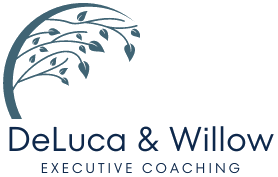Braving Trust – Dare to Lead
I’ve been spending time with the concept of conscious leadership. I’ve recently revisited Brene Brown’s Dare To Lead book. She defines a leader as anyone who takes responsibility for finding the potential in people and processes and has the courage to develop that potential. To do this one needs to be aware, present and committed. In other words, conscious. I’ll be unpacking Brene’s concepts in this series . Today, we’ll talk about braving trust.
Overview:
Brene outlines daring (conscious) leadership as a collection of four skill sets that are 100% teachable, observable, and measurable. She begins with the foundational skill set. The foundational skill set of courage-building is “rumbling with vulnerability.” The other three skill sets: Living into Our Values, Braving Trust, and Learning to Rise.
Let’s take a look at Trust:
Charles Feltman, the author of The Thin Book of Trust, defines trust as ‘choosing to risk making something you value vulnerable to another person’s actions”. Further, he states that ‘distrust is what is important to me is not safe with this person in this situation (or any situation).” Talking about trust can be difficult and often it is avoided, i.e. no rumble. Without trust, there is no connection. It often leads us to talk ‘about’ people vs ‘to’ them. Trust is the ‘glue’ that holds teams and organizations together. Trust between managers and employees is the primary defining characteristic of the very ‘best workplaces’, according to Forbes “100 Best Companies to Work For’ list. In conclusion, trust is a ‘must have’.
What’s your trust type?
In my experience, I’ve seen primarily two trust types. Those that trust inherently, ‘out of the gat’ until something happens that breaks that trust. The other trust type is those that start from a place of distrust or skepticism until something or a series of somethings ‘happen’ to earn trust over time. Which trust type are you?
“Must have” in a ‘must-avoid’ environment:
Since most of us avoid talking about trust, then what are we to do to solve it?
- Get Specific. According to Brown, she suggests getting specific about the behaviors or lack thereof that caused the breach in trust. This is more compelling then rumbling generally about trustworthiness or lack thereof.
- Take the BRAVING Inventory. BRAVING is an acronym that comprises the behaviors that define trust. It’s a great rumbling tool. Boundaries, Reliability, Accountability, Vault, Integrity, Non-judgement and Generosity. I’ll unpack BRAVING in next week’s blog.
- Reflect on self-trust. Our ability to trust others, surprise, starts with ourselves. Our ability to trust ourselves is the foundation of trust with others. Trust is built in small moments. If you struggle with boundaries, for example, set a small one with your partner or dear friend, like I’ll bring the groceries and clean up, if you cook ;). (one of my favorites).
I dare you to lead! We only have a finite amount of time on this planet, and you can choose how to spend that time. Is it hard for you to trust yourself, others? It would be amazing to rumble with trust and allow yourself the time and space to explore how this may be helping or hurting your career. Anoush Shafique, Director of the London School of Economics shares “In the past jobs were about muscles, now they are about brains, but in the future, they will be about the heart.”
Are you ready?: Press HERE for Success
I wish you much success in your career quest. Yours in balance, learning, growth, and harmony. – Melissa DeLuca, CEO



